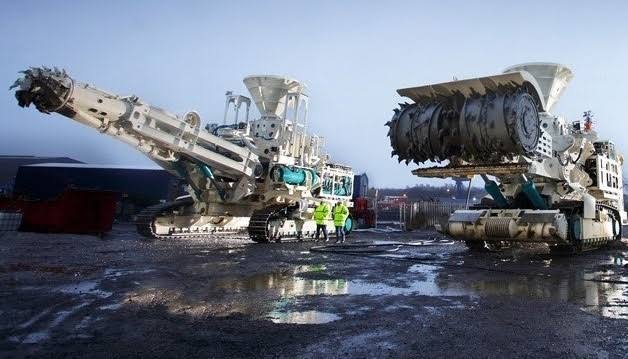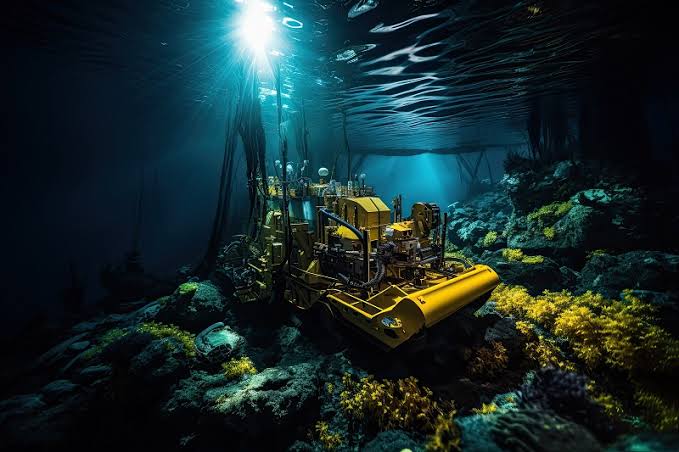The Federal Government of Nigeria has unveiled plans to delve into deep seabed exploration and mining as part of its broader initiative to capitalize on the blue economy’s immense potential and drive economic growth. This strategic move was announced during a stakeholders’ sensitization workshop on “Deep Seabed Activities” held on Wednesday in Abuja.
Speaking at the event, the Minister of Marine and Blue Economy, Adegboyega Oyetola, emphasized the importance of marine resources in the nation’s economic diversification efforts. He noted that as global interest in the marine economy continues to grow, Nigeria must position itself to take advantage of its vast oceanic resources.
The minister, represented by the Permanent Secretary of the ministry, Mr. Micheal Oloruntola, highlighted the numerous resources found on or beneath the ocean floor, particularly seabed minerals. He explained that these minerals hold great potential to fuel economic growth and transform Nigeria’s economy.

Oyetola underscored the Federal Government’s resolve to diversify the economy, especially by tapping into untapped marine resources. He remarked that Nigeria, being a major oil-producing country with extensive coastlines and numerous inland waterways, should not lag in exploring this new frontier.
According to him, the global shift from a fossil fuel-driven economy to a mineral-based one provides an excellent opportunity for Nigeria to transition into sustainable energy production by leveraging its abundant marine resources. He pointed out that wave and tidal energy, in particular, are underutilized sources of clean energy that Nigeria can harness to meet its growing energy demands.
In his words, “This transition from a fossil fuel-based to a mineral-based economy presents opportunities for Nigeria to leverage its marine resources, particularly wave and tide energy, to generate clean energy.”
“Effective harnessing of these resources will significantly contribute to our national`s energy needs and national economy”
The workshop aimed to raise awareness among key stakeholders about the importance of deep seabed exploration and its potential to shape Nigeria’s economic future.

Oyetola highlighted the need to address the environmental and social implications of deep seabed activities, stressing that while Nigeria embarks on this journey, it must prioritize the protection of marine ecosystems. He assured attendees that the government would ensure the sustainable development of the nation’s seabed resources while minimizing any adverse environmental impacts.
The Director-General of the Nigerian Maritime Administration and Safety Agency (NIMASA), Dr. Dayo Mobereola, also spoke at the event, urging stakeholders to come together to foster the growth of Nigeria’s marine and blue economy. He echoed Oyetola’s sentiments on the potential of deep-sea resources, stating that these resources could play a key role in enhancing Nigeria’s economic prosperity and sustainability.
Mobereola stated, “Nigeria has long benefited from offshore oil and gas. Looking ahead, deep-sea mining offers a unique opportunity to diversify the economy and ensure long-term growth,”
He further elaborated on the immense potential of Nigeria’s deep-sea region, which ranges from depths of 200 to 11,000 meters. This area, he noted, remains largely unexplored and is home to unique ecosystems and a wealth of biodiversity. Research and development efforts are currently underway to better understand the deep sea’s ecosystem, resources, and the potential applications of its findings.
The Director-General described deep seabed mining as a relatively new concept but one that could significantly boost Nigeria’s economic activities by enabling the extraction of vital minerals from the ocean floor. Among these minerals are copper, nickel, cobalt, and gold—all of which are critical to modern technological applications and green energy solutions.
These minerals, he explained, are crucial components for various industries, including the production of renewable energy technologies, such as batteries and electric vehicles, which will continue to grow in importance as the world shifts toward cleaner, more sustainable energy sources.
As Nigeria moves towards tapping into these deep-sea resources, the government is keen to ensure that this endeavor not only spurs economic growth but also adheres to international standards for environmental protection and sustainability. The Minister emphasized that while the benefits of seabed mining are promising, careful consideration of the associated environmental risks is crucial to avoid harming the marine environment.
The workshop concluded with a renewed commitment from all stakeholders to work collaboratively in advancing Nigeria’s blue economy. The Federal Government hopes that deep-sea mining, alongside other marine-based economic activities, will serve as a catalyst for long-term economic growth, ensuring that the nation remains competitive in the evolving global economy.
With Nigeria’s extensive coastal resources and the untapped potential of its seabed, the country is poised to make significant strides in marine exploration and sustainable economic development in the years to come.

































